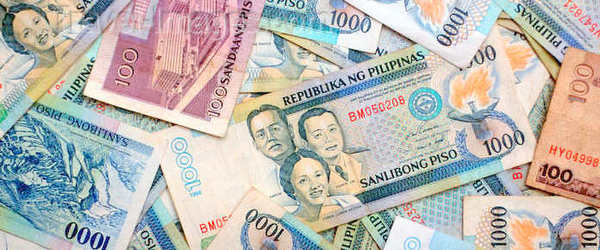
For everyone planning on retiring to the Philippines this year or within the next few years, they are really doing so at a great time. It is really an exciting time in the Philippines concerning their robust economy! For the past 27 years, I have remained up to date with the latest happenings in the Philippines and the Philippine economical situation has been no exception. Last year, I read the indicators that the Philippines was only a heartbeat away from taking off and becoming the shining star of Asian economics. When I spoke about this to my expat friends and acquaintances, I was scoffed at and I even received a few laughs! In my lifetime, I remember when only Japan was ranked higher economically in Asia than the Philippines. Yes, that was in the 1960s.
Recent Happenings
Last year, all the major financial experts were raving about the Philippines. Standard & Poor’s, Fitch, Moody’s, Barclays and the World Bank basically all agreed that the Philippine Economy was one among only 10 other nations in the entire world whose economy was not dismal or on shaky ground. Think about it! It is an honor of distinction in the world.
In June, 2012, Fitch Rating upgraded the Philippines credit rating to BB+ and during the same time, Standard & Poor’s did the very same. The Philippines is now on par with another Asian country, Indonesia, with their credit rating. For 2012, the Philippines growth was 6.6%. As we celebrated the New Year in 2013, the global economy is lackluster at best, however, the Philippines growth has not slowed down and is expected to hit 7% by year’s end. In January, 2013, the Philippines Stock Exchange hit a fabulous milestone in breaching the 6,000 level for the first time in history. Since January, the Philippine Stock Exchange continues to soar in its performance.
Advantage for Expats
The Philippines has reached a level of stability that it has not seen in many years and the world is taking notice. More foreign companies are investing and more jobs are being created for Filipinos. The inflation rate in the Philippines is not growing rapidly, as we see this everyday since we live here year round. There have been very little increases in commodities where we live over the past year and we know because we go shopping every week.
With this marvelous economic growth, expats living in the Philippines are seeing improvement in infrastructure, in the quality of education for their children, in stability and in overall growth and development. Some expats are concerned about the strengthening of the Philippine Peso and the weakening of the US Dollar, however, a balance is very possible. I remember living in the Philippines the first time, a time when both the Peso and the Dollar were strong and both complimented one other.
I am not encouraging anyone to invest in Philippines stocks, in the various money market strategies or engaging in small or large businesses but I am encouraging everyone to take and look and see that those with such interests can do a lot worse by investing in many other countries.
My wife and I are not economic wizards and we are not prophetic to predict the future but both us of agreed in 2009 that investing in the Philippines is not as risky as many thought at that time. Since then, we have not stopped investing and we have continued our trend on our own level, which is not big time by any means, yet it has paid off for us.



Gary,
Catchy subject. I’ve always liked that song by Simply Red and appreciate your tongue in cheek reference though, in fact, money’s rolling through the streets of Manila these days. Except for expats from the U.S. who haven’t figured out how to work their way into some sort of peso based income as the economy improves and their dollar buys less with every up-tick.
Better times for Filipinos means diminishing prospects for immigrants, whose money would buy a lot less pesos these days if BSP, the Philippine equivalent of the FED wasn’t buying up every loose dollar it can find.
Better infrastructure and education may be a long-term reality but, for now, are nothing more than slides in government generated power point presentations. I cannot think of any way a richer Philippines will do more than generate an insoluble conundrum for fixed income dollar earning immigrants.
Thanks for the comment Ralph.
I’m glad you appreciated the title… that’s was my contribution to the article. Gary did all the hard work so I won’t take any credit for that.
By the way, Gary was a ‘#1 Best Selling’ author for about 5 minutes on Amazon the other day. It was nice while it lasted and I have the screenshot to prove it!
Keep your thoughts and opinions coming Ralph. Always nice to hear a different point of view… as long as it’s presented in a civil and decent tone of course 🙂
Take care
Steve
You did not mention the inflation rate. It seems a lot higher than in a lot of other countries. My food bill is way up in just this last year. In fact we are moving back to our rural home so we can raise our chickens and pigs, vegetables. Dick
Hi Dick,
I am sorry hearing about the high inflation rate where you live in the Philippines. I am aware that prices are different in the many islands of the country. In my article, I did mention that there has been very little price increase in commodities where we live. The cost of diesel is actually cheaper now than earlier this year. Now, diesel is P42 per liter but it was P44 per liter.
The price of imported food products continues to increase in our area, in some stores, and I think that is because of the demand, with more foreigners moving into the area. Other than the few steaks I buy several times each month, my wife buys most of our meat and seafood from one of the public markets. I buy the steaks from Monterey Meat Shop, which has locations all over the Philippines. Monterey raises their own cattle, pigs and goats and I find the price of their meat reasonable.
My brother visited us last year and he was amazed how cheaper the prices of some food items are in our area of the Philippines, compared to where he lives in Florida, USA.
We also have a farm house in the rural area south of Bacolod. We had free range chickens there on the farm since Day One and later added a piggery for 15 pigs. We also grow rice commercially and we have a caretaker to maintain a large garden for us.
I wish you the best at your rural home. For sure, the cost of living is less expensive in the province than in the cities.
~ Gary ~
Dick, are you talking about your rural home in the province, or in America or elsewhere! I’ve thought the same thing as prices and other costs are increasing. I could live in the province rent free, just improve the existing family house; instead of paying rent in Manila…which is not cheap. I know of many young filipinos working in Metro Manila who are struggling to pay rent, food, etc on their meager salaries.
The Philippine economy may be doing fine, however in terms of exchange rates, it is a disadvantage to foreigners. I remember when the PHP to USD was 50 to 1. Now it’s around 41 to 1. The cost of living in the PI in my view has gone up and I believe many filipinos would agree. Now if foreigners are coming here to invest, and wish to take a risk, then that’s their business. There’s always money to be made almost anywhere I think, if one is smart. Because I’m more familiar with the US economy and stocks I would still invest in the US, even property, instead of the PI. That’s basically my point of view!
Thank you for your comment, John. Even though the Philippine Peso is strong against the US Dollar, the cost of living in the Philippines still affords a much better life style than any place in America I know. I don’t know any place in Florida, my legal US residence, where one can rent a decent house or apartment for less than $200 a month. In Bacolod City, I know of brand new townhouses renting for P7,500 per month and that is less than $200 USD. A friend from the USA lives in one of the townhouse units and it is a nice place to live.
If the expat living in the Philippines requires mostly imported food items, their food bill will be more expensive than back home on those certain items, in many cases. However, some food products popular in the USA are produced right here in the Philippines and the prices are not the imported prices, but rather the local prices that many Filipinos can afford. Many American food products are also enjoyed by many Filipinos on a regular basis.
I lived in the Philippines when the exchange rate was P19:$1 and I lived very well. I think many times, people are too focused on the exchange rate rather than what those P41 will buy where they live in the Philippines, compared to what $1 will buy back home.
Have a great day!
~ Gary ~
Well said bro.If a Philippine can live in the Philippines with his salary, so can an Expat.
Hi Guys,
I have to say that I would agree with Gary over here, having lived in a few different places around the world, I think living here in the Philippines is actually “Living up”.
Comparatively renting a house here or buying one is cheaper than places like Dubai or India for that matter. Like John Lynch said there is money to be made anywhere, if one is smart but the potential of making money here is higher since this is a developing country.
As far as infrastructure and education are concerned, yes it will take time but it is certainly getting a lot better than what it was, lots of multinational companies are starting to invest here. Education system is good here. University of Philippines, La Salle, St. Scolastica are well known education centers here. LCC has been been producing top notch engineers in the country. I guess it’s a matter of tapping the potential.
Finally, all aside we are all here and not in our home land and we all have a very positive reason to be here…
RAJ